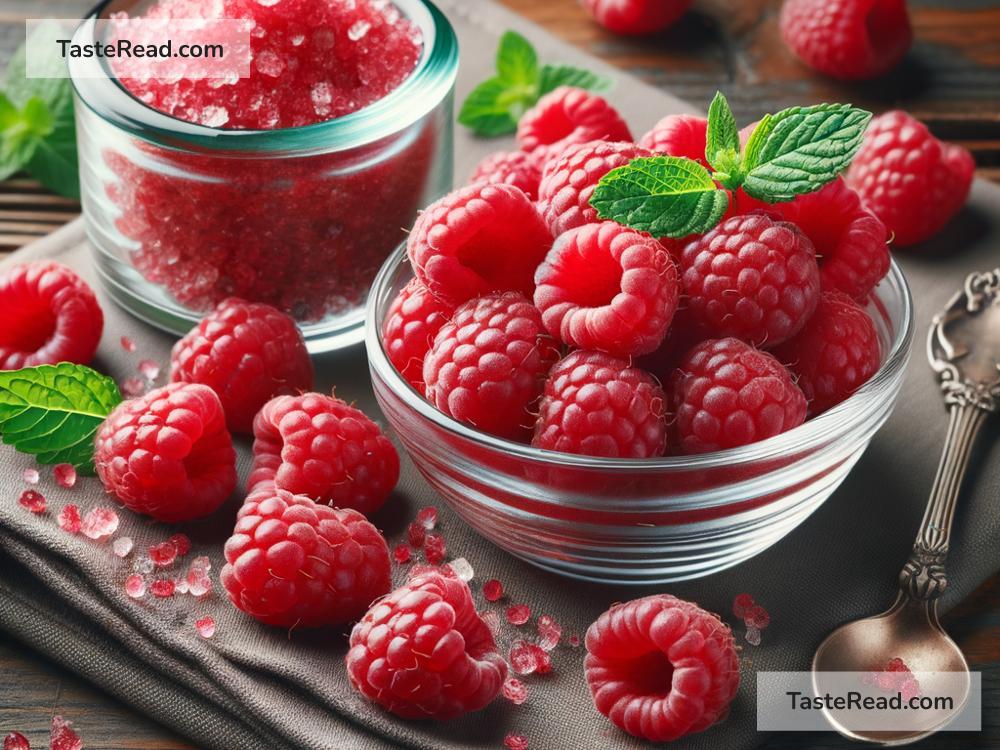The Truth About Raspberry Seeds and Their Nutritional Value
Raspberries are small, juicy, and colorful fruits that are loved all over the world. Whether you eat them fresh, turn them into jams, or use them in smoothies, raspberries are a delicious and healthy treat. But have you ever wondered about the tiny seeds hidden inside raspberries? These hard little seeds often get overlooked, yet they have their own unique nutritional value and health benefits. In today’s blog, we’re going to uncover the truth about raspberry seeds and why they deserve more attention.
What Are Raspberry Seeds?
If you’ve ever eaten a fresh raspberry, you’ve probably noticed the small, hard seeds inside. These seeds are a normal part of the fruit and make up its structure. Raspberries aren’t actually a single fruit; they are a collection of tiny individual fruits called drupelets. Each drupelet has its own seed, which explains why raspberries have so many!
You might not think about raspberry seeds much, especially since they’re usually swallowed or discarded when eating raspberries. However, these seeds are packed with nutrients that can contribute to better health.
The Nutritional Value of Raspberry Seeds
Raspberry seeds contain several nutrients and beneficial compounds. Even though they are small, they have a surprisingly big impact on your health. Let’s take a closer look at what’s inside these tiny seeds:
1. Fiber
Raspberry seeds are an excellent source of dietary fiber. Fiber is important for digestion and helps keep your bowel movements regular. Eating fiber-rich foods, like raspberries and their seeds, can prevent constipation and support a healthy gut. Fiber also helps you feel full for longer, which can be helpful if you’re trying to manage your weight.
2. Healthy Fats
Raspberry seeds contain small amounts of healthy fats, especially omega-3 and omega-6 fatty acids. These fats are good for your heart and brain. Omega-3s are known to reduce inflammation in the body, which can lower the risk of chronic diseases like heart disease and arthritis.
3. Antioxidants
Raspberry seeds are loaded with antioxidants like ellagic acid and vitamin E. Antioxidants help fight free radicals in the body, which are unstable molecules that can damage cells and lead to aging and disease. By eating raspberry seeds, you’re giving your body extra protection against these harmful substances.
4. Vitamins and Minerals
While the flesh of raspberries is rich in vitamins such as vitamin C and potassium, the seeds also contain valuable nutrients. Raspberry seeds contain traces of vitamin E, which is excellent for skin health, and magnesium, which supports muscle and nerve function.
The Health Benefits of Raspberry Seeds
The nutrients found in raspberry seeds can have some remarkable effects on your health. Here are a few reasons why these seeds are worth keeping in your diet:
1. Supports Heart Health
The healthy fats and antioxidants in raspberry seeds work together to promote a healthy heart. Omega-3s help reduce bad cholesterol and improve blood flow, while antioxidants protect the heart from oxidative damage. Eating raspberries, seeds included, can be a simple way to support your cardiovascular health.
2. Promotes Digestive Health
The fiber found in raspberry seeds helps your digestive system run smoothly. It feeds the good bacteria in your gut, promoting a balanced microbiome. This can lead to better digestion, less bloating, and improved overall gut health.
3. Protects Skin
Ellagic acid, an antioxidant found in raspberry seeds, is known to protect the skin from damage caused by UV rays and pollution. Regular consumption of foods rich in ellagic acid, like raspberries, may help keep your skin healthy and prevent signs of aging.
4. Supports Weight Management
Because fiber helps keep you full, eating fiber-rich foods like raspberries can lower overall calorie intake. Plus, raspberries are naturally low in calories and high in nutrients, making them an excellent addition to a healthy diet.
How to Eat Raspberry Seeds?
If you’re eating fresh raspberries, you’re already consuming their seeds. They are safe to eat and won’t harm your digestive system. However, some people dislike the crunchy texture of the seeds or worry about them getting stuck in their teeth. If you’re not a fan of eating raspberry seeds directly, there are still ways to enjoy their nutritional benefits:
-
Raspberry Seed Oil: Oil extracted from raspberry seeds is rich in omega fatty acids and antioxidants. It’s often used as a skincare product but can also be added to smoothies or salads.
-
Raspberry Powder or Supplements: Some companies sell raspberry seed powder or supplements that make it easier to consume the seeds without dealing with their texture.
-
Smoothies: Blend raspberries into a smoothie—the seeds won’t be as noticeable, and you’ll still get their nutrition.
Final Thoughts
Raspberry seeds may be small, but their nutritional value is mighty. Packed with fiber, healthy fats, and antioxidants, these tiny seeds offer a range of health benefits, from supporting digestion to promoting heart health. The next time you eat raspberries, don’t discard the seeds—embrace them as a natural and nutritious part of the fruit.
Now that you know the truth about raspberry seeds, you may look at this wonderful fruit differently. Whether you eat them fresh or explore creative ways to use them, raspberries and their seeds are a valuable addition to a healthy diet. So go ahead and enjoy these little powerhouses, seeds and all!


